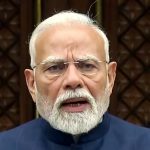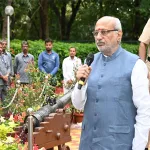PROF. DR. FAYAZ AHMAD LONE
The history of reservation goes back to Jotirao Phule, an Indian social activist, who made a strong deposition before the Hunter Commission (1881) to open separate schools, especially in rural areas, for lower castes, who otherwise prefer to stay away from schools or become drop-outs at an early stage due to caste prejudices (Selected writings of Jotirao Phule). In 1902, Shahu Maharaj, the King of princely state of Kolhapur, issued a historic order proclaiming 50 per cent reservation for the backward classes in jobs setting the first example of reservation for backward classes in India.
When for the first time Indian Councils Act of 1909 (Morley-Minto Reforms) made provision for a separate electorate for the Muslims, many leaders of the ‘Depressed Class’, a loose term that referred to Dalits/Untouchables/Scheduled castes, demanded for them reservation of seats in legislative bodies. At the All India Depressed Class conference held in Madras in February 1929, the leaders expressed anguish and anger over the abominable miseries of depressed classes, as is reflected from their statements that the leaders and the so-called patriots of India demanded political rights, but they were not ready to give social rights to their own countrymen (The Hindu, Madras, 25th February, 1929).
Dr. B. R. Ambedkar, the most important Dalit leader and wide-ranging thinker of modern India, has been instrumental behind reservation to Depressed Classes. He believed that social reform was necessary for political and economic reform because of deep rooted caste system in Hindu community. In his undelivered speech for a conference at Lahore in 1936, ‘The annihilation of caste’, Dr. Ambedkar while trying to portray the plight of untouchables in India says, “Caste is a powerful weapon for preventing all reform… society should be based on liberty, equality and fraternity”.
Although, Simon Commission (1927) turned down the demand of a separate electorate for the depressed class, instead recommended reservation of seats for them, Dr. Ambedkar succeeded in his mission when the British Prime Minister Ramsay Mac-Donald announced the Communal Award in August, 1932, making the provision for a separate electorate for the Depressed Class. Getting unhappy with the proclamation of Communal Award, M. K. Gandhi, while in prison, announced fast unto death till the time separate electorates were removed from the Award, which he believed a conspiracy to divide Hindu electorate.
British Government agreed to modify the Communal Award subject to agreement with communities concerned. Initially Dr. Ambedkar was not fazed by Gandhi Ji’s fast but later, due to persuasion by a number of Indian political leaders and some other pressures, agreed to negotiate which fructified in the shape of Poona Pact (1932) that agreed to enhance the reservation of depressed class candidates from 78 seats to 148 to be elected by a joint electorate instead of a separate electorate.
The Government of India Act (1935) gave legal sanction to such reservation followed by incorporation, after threadbare discussions by the Constituent Assembly in 1950, in Articles 15 and 16 of the Constitution. The reservation was further extended to the educational institutions in 1954 making the final figure for SCs and schedule tribes STs 15% and 7.5% respectively. So reservation system is an affirmative action, guaranteed by the constitution of India, aimed to address the historical injustices faced by certain population segments, which have got marginalised due to caste system that has deep roots in Indian history.
The Mandal Commission, founded in 1979 under the chairmanship of B. P. Mandal with the goal of identifying those who are socially or educationally backward, in its report submitted in 1980 was the first to define OBC reservation in India. The commission, relying mainly on the 1931 census, the last caste-based one conducted by the British government, recommended 27% reservation for OBC, later upheld by Supreme Court of India in 1992 with exception of the ‘creamy layer’, a term coined by the supreme court for OBCs who are affluent.
The billions of human beings living on earth, all belong to one species – Homo sapiens. As in all species, there is variation among individual human beings, from size and shape to skin tone and eye colour. But we are much more alike than we are different. We are, in fact, remarkably similar. The DNA of all human beings living today is 99.9% alike. A famous geneticist Kenneth Kidd has said, “Race is not biologically definable. We are far too similar”. In February 2001, Craig Venter, President of Celera Genomics, commenting on the near-completion of the human genome project said, “We are all essentially identical twins”. In biology we know that environmental variations, which are reversible, lead to the formation of ecads or ecophenes within a species, however, if placed in a similar environment, their phenotypic variations are lost.
Similarly in human beings if the two individuals of a monozygotic twin are nurtured in two different environments they will behave differently until remixed together and allowed to grow under similar environmental conditions. Dalits, Adivasi’s or any other such backward tribe are also Homo sapiens with 46 chromosomes but due to specific social environment they live in, remain underdeveloped. If they are provided with adequate facilities like education, healthcare and many more, they will become second to none. Dr. Ambedkar, Savitribai Phule, Martin Luther King Jr., Nelson Mandela and many more have proved their worth and mettle.
Allah (SWT) has created all the human beings from a single pair of male and female (Adam and Eve AS) and made them into nations and tribes so that they may know each other (Al-Quran 4:2). So tribes, races, ethnicity, language and nationality or whatever is there are all for identification only, otherwise they belong to the same genetic stock. No one is superior. All the barriers are man-made and something undesirable. To Allah (SWT) the superior is the one who is God fearing. Prophet Mohammad (SAW) in his last sermon has made it clear that no Arab has superiority over non-Arab and no white has superiority over black and vice versa.
Racism and other forms of such evil have been there on earth since time immemorial, and to guide the humanity towards right path God sent down his messengers and created many other people with wisdom and courage to emancipate the society. Prophet Mohammad (SAW), the last messenger was sent at a time when the whole Arab world was in darkness. Female infanticide, tribal enmity, plunder and immodesty were rampant. Racism in US, which was mandated under various laws like Jim-Crow, was abolished in 20th century due to efforts of leaders like Martin Luther King Jr. Similarly apartheid, an institutionalised racial segregation in South Africa that lasted for more than forty years was abolished by strenuous and unwavering efforts of Nelson Mandela.
The Indian state provides reservation to different categories on different grounds. For the Scheduled Castes (SCs), the principal ground for reservation has been the experience of untouchability. The Scheduled Tribes (STs) get it because of their disabilities faced on account of their geographical locations and other characteristics while the OBCs get it because of their social and educational backwardness. Women get it because of their discrimination due to patriarchy in society and Economically Weaker Sections (EWS) get it because of their poor economic status. J&K Government vide SRO 49 of 2018, in an attempt to support open merit, reduced the reservation quota for PG courses in medical, engineering and agriculture to 25%,leaving UG courses unchanged. However, the reservation quota has recently been enhanced to 60%vide SO 176 of 2024, which is against the 50% cap laid down by the Supreme Court of India.
Horizontal flip of a reserve category candidate, securing a score equivalent to or more than open merit, moves to general category quota thereby limiting the space for open merit and leaving room for another reserve category candidate for selection is another issue to be revisited. Where will general category (open merit) candidates go? Is their population only 40%? How long will this reservation policy last? It seems to be eternal due to political compulsions. What is its net impact on the efficiency of the system? The policy makers have to think in a realistic and rationalistic way. The recent advertisement of JKPSC for 575 posts of lecturers in School education department shows 60% reservation for various categories leaving only 40% posts for the open merit candidates who constitute more than 50% of the population of unemployed educated youth.
Promoting reservation culture or maintaining silence on the issue is a criminal act. Creamy layer rider of Supreme Court for OBCs is not being followed in letter and spirit and it has not been extended to SCs/STs. Affluent SC/ST and even OBC candidates harvest the benefit of reservation policy silently whereas the poorest among general category face stiff open merit competition. The result is manifested in the shape of higher unemployment rates or forced migration of general category candidates to other parts of the world for earning livelihood, even accepting blue collar jobs. There is simple stochastic relationship between unemployment duration and the reservation wage.
A person who has been unemployed for a long time loses hope to get a good offer in near future, therefore, is likely to have a rather high reservation wage or suffers from depression, a common mental disorder (WHO).Further, an individual lacking a source of legitimate income due to unemployment despite possessing requisite qualification resorts to criminal activities like homicide, kidnapping, extortion, drug peddling and property crime to make an income.
If the current reservation policy continues unabated, a time will come or it has already arrived, when government will have to give handhold to general category to rescue them from perishing. A painful incident in my youthful life related to reservation is still haunting me. I could not make it to the selection list of MBBS in 1984 under open merit whereas a candidate from an affluent and highly influential family, having migrated to a posh area of Srinagar decades ago, but still possessing LOC certificate, made it even with a low merit.
It is a common maxim that all the four tyres of a car are equally indispensable. You cannot repair the burst tyre by damaging healthy tyre of the same car. The tremendous pressure on general category candidates is affecting them both physically and mentally. They too are human beings, not machines. A number of NEET aspirants commit suicide or resort to drug abuse due to unbearable academic pressure and stiff competition which has worsened due to squeezing space for open merit. In 2024, fifteen such aspirants and in 2023 around 30 NEET aspirants committed suicide from Kota Rajasthan only (India Today 5/9/2024).
We cannot challenge the hardships the bereft class, economically weaker sections and geographically isolated or distant communities face. They lack basic amenities of life. They fail to afford quality education, healthcare facilities and hygienic and nutritious food for themselves and their families but these shortcomings cannot be compensated at the cost of merit. The government is free and duty bound to support them by way of creating facilities and providing adequate financial aid and scholarships to overcome their social and economic backwardness but do away with reservation, at least in a phased manner.
We cannot live with reservation policy for an indefinite period, the way a patient can’t be kept on life support system for the entire life. The length of national highways in Jammu & Kashmir has increased 3-fold during the last 20 years crossing 2500 km in 2023 (Statista). Remotest habitations in Keran, Machil, Teetwal, Uri, Gurez and Rajouri and Poonch areas, located on LOC and many more pockets across J&K are well road connected and have become new tourist destinations. The schools have mushroomed to such an extent that out of a total of 23000 schools across J&K around 850 are with zero enrolment (MoE). Healthcare system and ICDS have been upgraded and widened to a considerable extent. More than 2800 health and wellness centres and 28500 Aganwadi centres are operational across the UT. Due to high speed internet,available even in mountainous valleys and online culture from villages to towns,the whole world has turned into a global village. Why RBA still continues?
Reservation on the basis of caste, language and geographic location is promoting discrimination. It is turning into an agent of hatred, tearing us into fragments instead of stitching together. Reservation, while helping some selected, is hurting others. An ST and a general category candidate with same qualification, hailing from the same locality, got appointed as teachers in school education department in late 1990s. The former got elevated to gazetted cadre (pay level-9) some five to six years back while the latter could hardly reach master grade (pay level-6). There are hundreds of such examples across various departments where general category candidates are the subordinates of their reserve category batch mates or even juniors. Is it justified? The 77th Amendment to Constitution in 1995, involving the insertion of 4A clause in Article 16, and providing reservation in promotion to SC and ST category has turned out too harsh to general category. Similar situation is observed in RBA category.
To be very honest, either all the rural areas, particularly those belonging to frontier districts, fall under backward area category or none. The category has been created and doled out on unjust and political reasons. How can you notify a village as socially and educationally backward (SEB) and deny such a status to its close neighbouring hamlet which is not even separated from the former even by a small stream or a road. Moreover, a village notified as SEB 15-20 years ago continues to be backward till date despite having improved considerably and availing all the facilities from healthcare to education and many more including electricity, drinking water, ration depot and LPG.
A five-Judge bench of the Supreme Court in its majority judgement (2022), while upholding reservation based on economic criteria said, “Reservation policy cannot stay for indefinite period. It must have a time span. At the end of 75 years of our independence, we need to revisit the system of reservation in the larger interest of the society as a whole. It could be a way forward leading to an egalitarian, casteless and classless society” (The Hindu 7/11/2022).
US Supreme Court opined in its verdict in two similar cases titled ‘Students for Fair Admissions (SFFA) vs Harvard College and SFFA vs University of North Carolina’ in June, 2023 that the policy of reservation for reducing the historic deficit of traditionally disfavoured minorities in medical schools was akin to “preferring members of any one group for no reason other than the race or ethnic origin”. The verdict says, “Constitution is colour blind, is our dedicated belief…..and the guarantee of equal protection cannot mean one thing when applied to one individual and something else when applied to a person of another colour….if both are not accorded the same protection, then it is not equal”.
However, due to its umbilical cord type connection with vote politics, no political party or activist ever dares to say anything against reservation, rather political parties distance themselves or resort to damage control, if any of their leaders has a lapsus linguae during press/public meetings. RSS Chief Mohan Baghwat in 2023, had to change his earlier statement, which was against continuation of reservation policy, due to BJP’s electoral debacle in Bihar in 2015 (Indian Express 8/9/2023). In September 2024, when Rahul Gandhi, during a visit to US, told students of Georgetown University that Congress party would think of scrapping reservation, it created a wave of negative mobilisation against him. In fact, analysts say that it was one of the factors that contributed to his party’s defeat in Haryana assembly polls (TOI, 12/10/2024). Unless our leaders rise above electoral politics, think rationally and analytically, the general category will continue to suffer, leading to their marginalisation.
(Author is Principal (Rtd.) J&K Higher Education Department. Email: [email protected]








